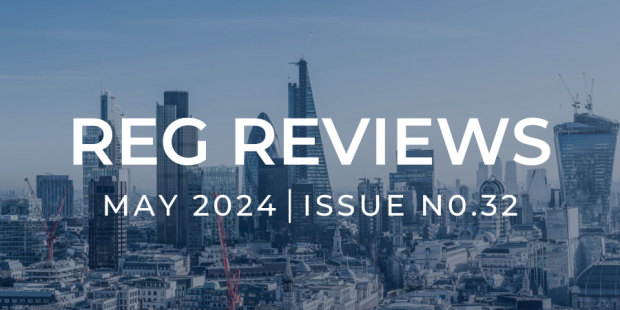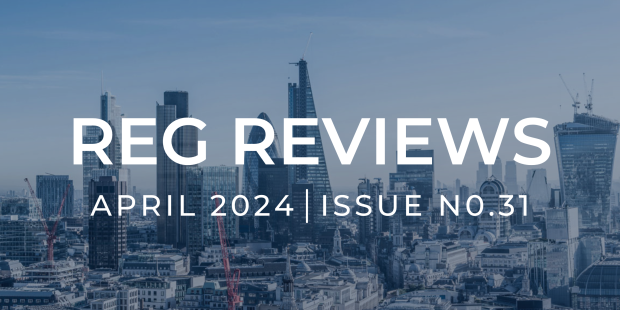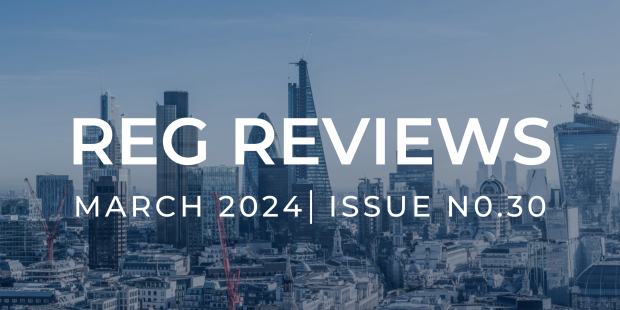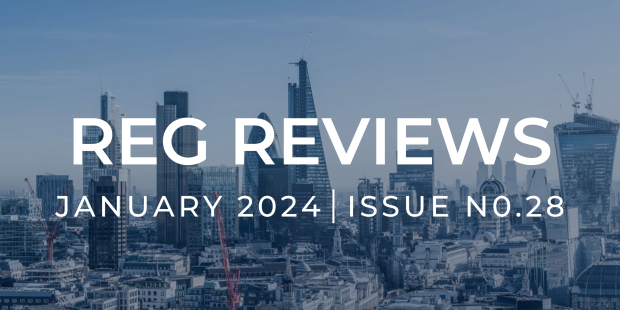On Thursday 20th June, REG hosted its Summer Conference, titled ‘Champions of Change – Growing with Passion and Purpose.’
The day entailed motivational and strategic talks from members of our Senior Leadership Team as well as hearing from an array of amazing guest speakers on various strategies for growth, navigating emerging risks and overcoming adversity.
Sandra Simoes and Diogo Luis, Head of Product and Chief Technology Officer at REG Technologies, gave an insightful talk on the importance of staying ‘agile’ when contending with unforeseen challenges, and how flexibility, adaptability and team collaboration are essential to overcoming setbacks.
Head of Customer Success, Nathan Banfield then gave an inspiring talk focused on the evolution of customer management and how transforming strategies to focus on a ‘success’ mindset rather than a ‘support’ mindset is key to ensure sustained relationships, enhance customer experience and propel growth.
Finally, Zoë Parsons and Victoria Slade, Marketing Manager and Head of Sales, presented on the evolution of sales and marketing through the ages and how to remain at the forefront. Leading with the collaborative approach of the term ‘Smarketing’ – an integrated sales and marketing approach – they delivered ideas for cross-departmental innovation to drive brand success.
Our first guest speaker, Kent Bray, is an ex rugby player with a career spanning across law and foreign exchange as well as former Company Director of Citibank. Following his journey through addiction and recovery, Kent is now a counsellor, mentor and motivational speaker, and he unfolded is powerful and moving story which inspired and captivated the room.
Our second external speaker, Kye Brown, Business Development Manager at Coalition, detailed the emerging risks in the cyber market and how specialist insurance can support businesses. He focused on how solutions can prevent digital risks before they strikes.
Finally, we heard form Anna Hemmings MBE, six time world champion, two time Olympian and now a world class keynote speaker, entrepreneur, leadership & high performance coach. Anna’s story is one of resilience, determination and awe, as she demonstrated how many learnings from her sporting journey can be applied to the business world.
Finishing with a gala dinner and awards ceremony, we celebrated our amazing team and reflected on the presentations from the day and how to grow stronger.
Our key takeaways from the day are:
- Set yourself extraordinary goals
- Work hard and be consistent
- Feedback is the food of champions
- Review, learn and embrace failure
- Take accountability
- Develop a winning mindset
- Fear is ok, it drives you
- And most importantly = be in the moment
Thank you to everyone at REG and our guests who made this event a success, we look forward to the next one!




























